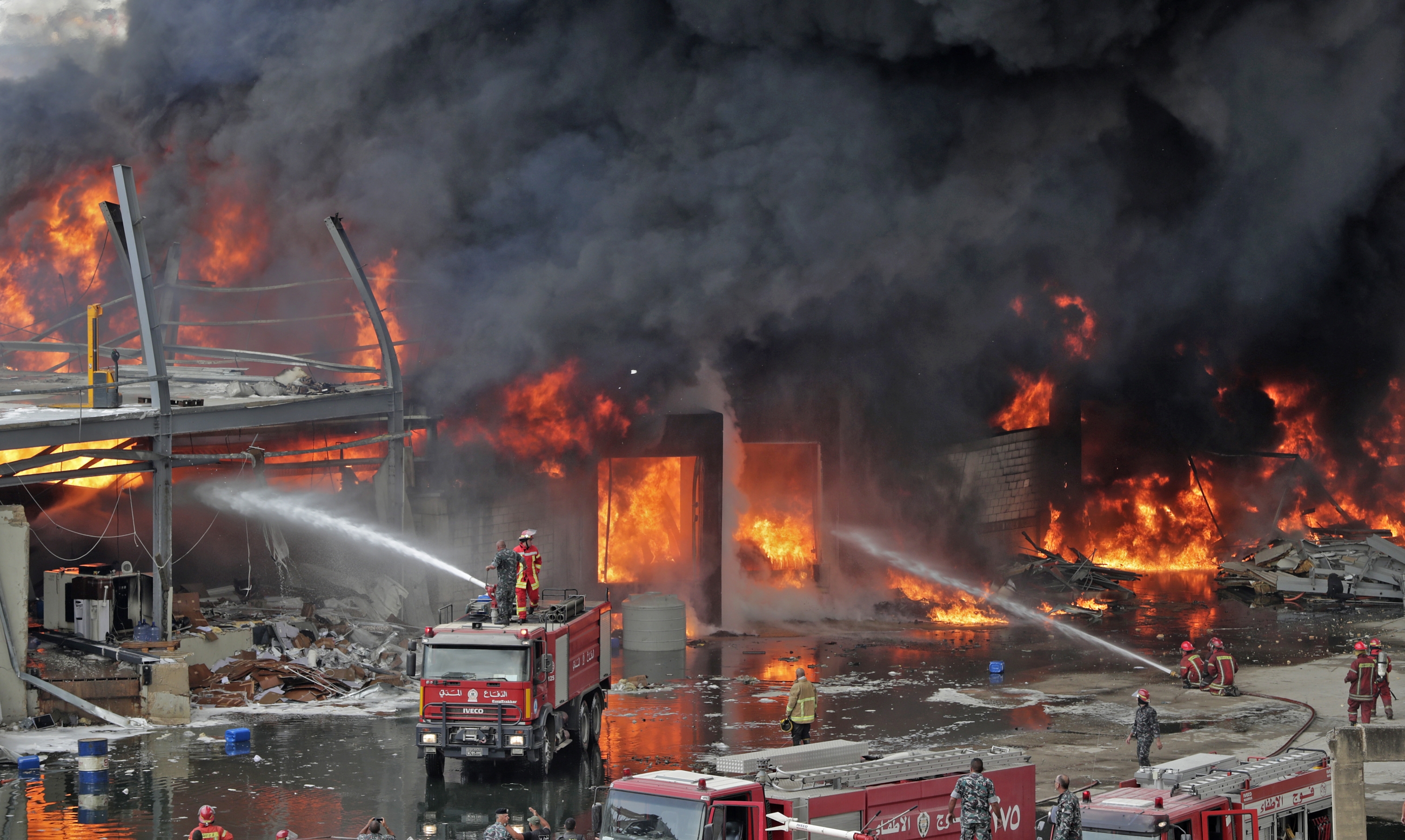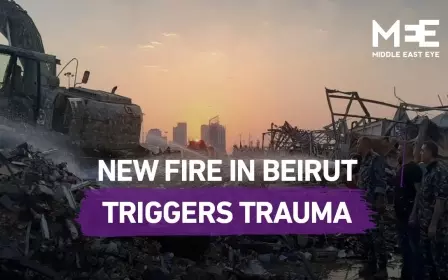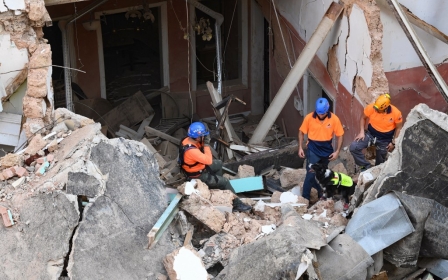Beirut port fire hits warehouse storing critical food aid

A fire that broke out at Beirut's port on Thursday reached a warehouse containing critical food aid, the International Committee of the Red Cross (ICRC) warned, as the Lebanese president said the blaze may be a result of sabotage or negligence.
Humanitarian operations could be seriously hit, said ICRC regional director Fabrizio Carboni, if the food supply is taken by the blaze, which broke out just over a month after a huge explosion devastated large parts of the Lebanese capital.
"The warehouse on fire is where ICRC stocks thousands [of] food parcels and 0.5 million litres of oil," Carboni said. "Our humanitarian operation risks to be seriously disrupted."
Meanwhile, Lebanese President Michel Aoun said the fire that ripped through Beirut's already devastated port might be the result of sabotage, a technical error or negligence, according to the presidential Twitter account.
"In all cases, the cause must be known as soon as possible and the perpetrators held to account," the president was quoted as saying in a tweet, as he met the Supreme Council of Defense.
New MEE newsletter: Jerusalem Dispatch
Sign up to get the latest insights and analysis on Israel-Palestine, alongside Turkey Unpacked and other MEE newsletters
Earlier on Thursday, residents of Beirut spoke of growing panic in the city at the sight of the fire, bringing back memories of the 4 August blast which killed at least 190 people and left entire neighbourhoods in ruins.
The Lebanese army said in a statement that a fire had broken out in an oil and tyre warehouse, and army helicopters were helping extinguish it.
A military source told the LBCI news channel the port area was being evacuated because of the fire. A representative of the city's civil defence brigade also told the channel there were fire engines on the scene, but that they needed more water to put out the fire.
Video footage shared on social media showed port workers running from the fire.
Haitham, a 33-year-old port worker, told AFP how he'd fled in fear. "We were working when all of a sudden they started yelling at us to get out," he said. "There was welding going on... and a fire broke out. We don't know what happened. We dropped everything and started running... It reminded us of the explosion."
Still, the head of the Lebanese Red Cross told LBCI there was no fear of an explosion from the blaze, and no injuries - apart from some people facing shortness of breath due to smoke inhalation.
The interim head of the port, Bassem al-Kaissi, told the channel that the blaze started in the port's free zone, where an importer had stocked cooking oil containers and tyres.
The fire "started with oil containers before moving on to the tyres", he said. "It was either caused by the heat or by a mistake. It's too early to say."
The new incident comes a little over a month after an ammonium nitrate explosion ripped through Lebanon's capital.
Authorities held ceremonies on Friday to mark a month since the explosion tore into a city already reeling from a crippling economic crisis worsened by the coronavirus pandemic.
Lebanon has launched a probe into the blast, one of the biggest non-nuclear explosions ever, and arrested 25 suspects so far.
Among them are top port and customs officials, as well as Syrian workers who allegedly carried out welding hours before the explosion.
Lebanese authorities rejected an international investigation into the explosion, but its probe is being aided by foreign experts, including from France and the US Federal Bureau of Investigation.
However, Lebanese activists have expressed serious doubts that the government investigation will effectively uncover those responsible for the explosion, as the corruption and inefficiency of the country's ruling class are widely seen as the main problems.
Last week, rescue workers digging through a collapsed Beirut building said there was no longer any hope of finding anyone alive, dashing any optimism.
About 50 rescue workers and volunteers, including a specialist team from Chile, had worked for three days to locate survivors after sensors on Thursday had detected signs of breathing and heat.
On Tuesday, another, smaller fire erupted in the port, also prompting fears among residents.
Middle East Eye delivers independent and unrivalled coverage and analysis of the Middle East, North Africa and beyond. To learn more about republishing this content and the associated fees, please fill out this form. More about MEE can be found here.




